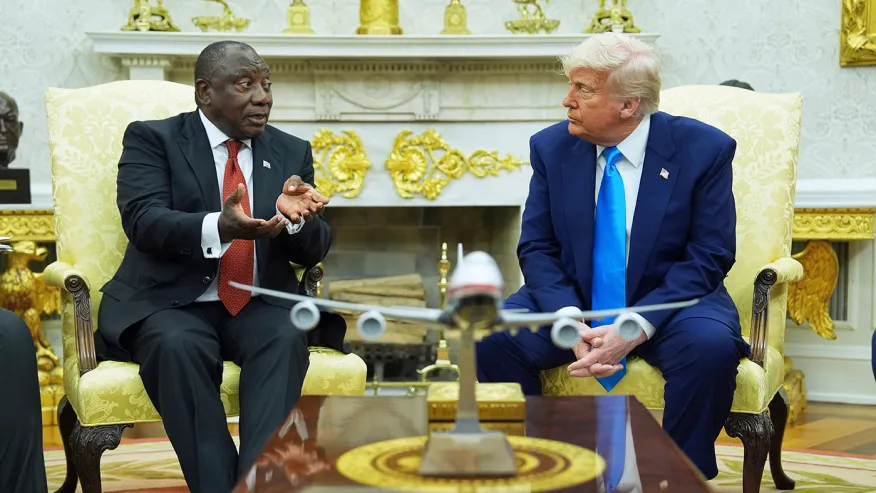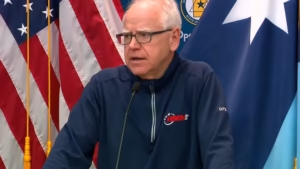In a dramatic Oval Office encounter, President Donald Trump confronted South African President Cyril Ramaphosa with claims of violence against white farmers, igniting a contentious debate over land reform and racial tensions in South Africa.
A Tense Oval Office Meeting
On May 21, 2025, President Trump hosted President Ramaphosa at the White House. The meeting, intended to strengthen diplomatic ties, quickly turned confrontational when Trump presented a video depicting alleged attacks on white farmers in South Africa. The footage, which included scenes of white crosses and inflammatory rhetoric, was used by Trump to support his claims of a “white genocide” occurring in the country.
Ramaphosa responded by challenging the authenticity of the video and emphasizing that crime in South Africa affects all citizens, regardless of race. He highlighted that the majority of violent crime victims in South Africa are black and that the government does not endorse any form of racial violence.
The Controversial Video and Its Implications
The video presented by Trump featured clips of South African opposition politician Julius Malema chanting slogans perceived as inciting violence against white farmers. However, Ramaphosa clarified that Malema’s views do not represent government policy and that South Africa’s constitution protects freedom of expression, allowing for a multiparty democracy.
Trump’s use of the video and his subsequent comments have been criticized by various media outlets and fact-checkers, who note that the narrative of a targeted “white genocide” in South Africa lacks substantial evidence. While farm attacks do occur, they are part of a broader context of high crime rates affecting all communities in the country.
Land Reform and Historical Context
The confrontation also brought attention to South Africa’s land reform policies. In early 2025, Ramaphosa signed a controversial law allowing the government to expropriate land without compensation under specific circumstances deemed equitable and in the public interest. The policy aims to address historical injustices stemming from apartheid-era land dispossession.
Critics argue that the law could lead to economic instability and deter foreign investment. Supporters contend that it is a necessary step toward rectifying long-standing inequalities. Despite the law’s passage, no land has been seized under its provisions to date.
Diplomatic Fallout and International Reactions
The Oval Office exchange has strained U.S.-South Africa relations. Following the meeting, Trump announced the suspension of U.S. aid to South Africa and offered refugee status to white South African farmers, a move that has been met with both support and criticism domestically and internationally.
South African officials have expressed concern over the U.S. administration’s stance, emphasizing their commitment to democratic principles and the rule of law. Ramaphosa has called for continued dialogue and cooperation between the two nations, despite the recent tensions.
Media Coverage and Public Discourse
The incident has garnered widespread media attention, with various outlets analyzing the implications of Trump’s claims and the broader context of South Africa’s socio-political landscape. Fact-checkers have debunked the notion of a systematic campaign against white farmers, highlighting the lack of credible evidence to support such assertions. (The Washington Post)
Public discourse has been polarized, with some viewing Trump’s actions as a defense of minority rights, while others see it as an unwarranted interference in another country’s internal affairs. The debate underscores the complexities of addressing historical injustices and the challenges of navigating international diplomacy in a globalized world.
Conclusion
The confrontation between President Trump and President Ramaphosa has spotlighted the intricate issues surrounding land reform, racial tensions, and international relations. As South Africa continues to grapple with its past and strive for a more equitable future, it is imperative for global leaders to engage in informed and respectful dialogue.
For ongoing updates and in-depth analysis, subscribe to trusted news sites like USnewsSphere.com for continuous updates.
[USnewsSphere.com / ab.]





